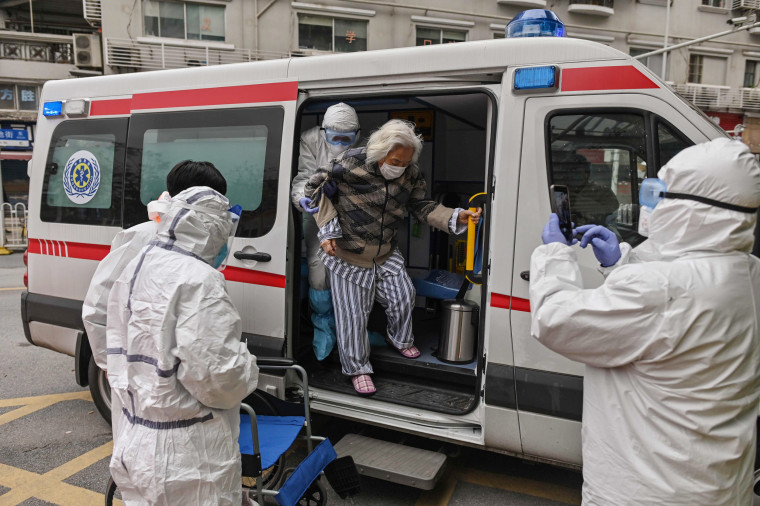Those who recover from the coronavirus are probably not going to catch it again, at least in the short term, experts say. But it's unclear how long that immunity will last.
"It is reasonable to predict we will have some immunity. To say you will have lifelong immunity? We just don’t know yet," said Frances Lund, professor and chair of the department of microbiology at the University of Alabama at Birmingham. "But I think it’s a reasonable conclusion that you will have immunity for the rest of this season."
The key to immunity lies in the antibodies produced by people who have recovered from COVID-19, the disease caused by the coronavirus.
Antibodies are proteins in the bloodstream that attack foreign intruders, such as viruses and bacteria. Those produced in response to the coronavirus may one day help guide public health measures, such as signaling when it is safe for a person to end social distancing. They are also being explored as a treatment for critically ill patients whose own antibodies are not enough to fight off the virus.
More research is needed in both of those areas, but in the meantime, top health officials have expressed confidence that coronavirus antibodies are likely able to prevent a person who had the infection from getting sick with it a second time.
"I feel really confident that if this virus acts like every other virus that we know, once you get infected, get better, clear the virus, then you will have immunity that will protect you against reinfection."
"We don't know that for 100 percent certain because we haven't done the study," Dr. Anthony Fauci, head of the National Institute of Allergy and Infectious Diseases, told "The Daily Show" host Trevor Noah last week. "But I feel really confident that if this virus acts like every other virus that we know, once you get infected, get better, clear the virus, then you will have immunity that will protect you against reinfection."
Full coverage of the coronavirus outbreak
Whether that protection will be long term depends on a number of factors, experts say.
The first is whether the virus mutates. If it stays stable, those who have had it have a high chance of being able to "stop it at the door" if they are exposed to it a second time because the antibodies in their blood will recognize it and prevent it from replicating in their bodies, Lund said.
But the coronavirus is an RNA virus, meaning its genetic material is made up of RNA, not DNA. And RNA viruses have a tendency to mutate over time: Seasonal influenza, another RNA virus, usually changes from year to year.
"That’s why every year, there's a new vaccine for the flu," said Dr. Tim Schacker, an infectious disease doctor and vice dean for research at the University of Minnesota's medical school. "Influenza has been here forever; you're making antibodies to some parts of the virus all the time, but it's the novel parts of the virus that you want to have antibodies to."
Since this "coronavirus is a brand new virus," Schacker said, everyone is vulnerable to every part of it.
The other factor in avoiding reinfection is how good the antibodies are that people are making against the coronavirus. Humans almost always make antibodies when exposed to a virus. But not every antibody is powerful enough to block a virus from infecting cells again — and scientists have yet to discover whether the coronavirus antibodies are high-quality ones.
"Do they neutralize the virus, which means binds to a very specific place on the virus that will prevent the virus from attaching to the cell it would normally infect?" Lund said.
Even if the antibodies are capable of this, the immunity they provide could wane over time.
"Because this is so new, it's hard to predict what's going to happen," said Joel Baines, a virologist at Louisiana State University. "There's going to be a period of immunity, and it could be as little as eight months to a year, and as long as several years."
"All of that is in your garden variety infection. We just don't know yet what's going to happen with this infection."
This period is called immunologic memory, Schacker said, and is dependent upon the plasma cells that make antibodies dividing and staying in your blood for some time.
"So if you get re-exposed to that pathogen, and you have a sufficient number of cells to make antibodies, then you are protected from reinfection," he said. "But all of that is in your garden variety infection. We just don't know yet what's going to happen with this infection."
Download the NBC News app for full coverage of the coronavirus outbreak
There are hopeful signs about the quality of the coronavirus antibodies that the body makes. Trial treatments using convalescent serum, or antibody-rich plasma donated from recovered coronavirus patients, have shown promise on very ill patients — so much so that New York Gov. Andrew Cuomo announced a plan to use the experimental treatment in his state, the hardest hit in the U.S., in an effort to save lives.
The serum works by giving the patients' own antibodies an assist against the coronavirus, and may also give their immune system a break, allowing it to reduce some of the inflammatory response it has created to the virus, Lund said.
While preliminary results have scientists optimistic, the experts caution that more studies are needed before making any conclusions about the coronavirus and immunity.
"Viruses have been around a really, really long time, and they are not dumb," Lund said. "They have figured out what they need to do to thrive."



